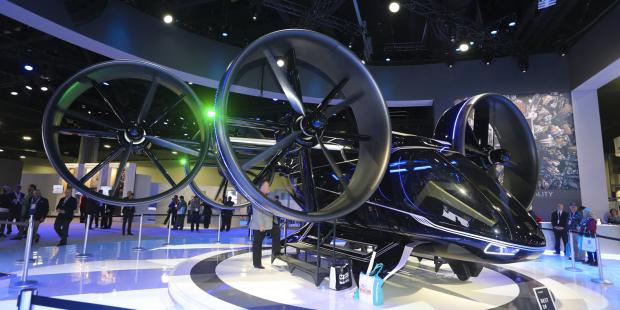
Breaking News
 Closing in on How Charlie Kirk Was Assassinated
Closing in on How Charlie Kirk Was Assassinated
 Here's a little song I just wrote. Dedicated to Al Gore.
Here's a little song I just wrote. Dedicated to Al Gore.
 Judge Blocks Executive Order Tightening Voter-registration Requirements
Judge Blocks Executive Order Tightening Voter-registration Requirements
 ALEX JONES' EXCLUSIVE EPSTEIN DOJ MEGA DOCUMENT DUMP ANALYSIS:
ALEX JONES' EXCLUSIVE EPSTEIN DOJ MEGA DOCUMENT DUMP ANALYSIS:
Top Tech News
 Critical Linux Warning: 800,000 Devices Are EXPOSED
Critical Linux Warning: 800,000 Devices Are EXPOSED
 'Brave New World': IVF Company's Eugenics Tool Lets Couples Pick 'Best' Baby, Di
'Brave New World': IVF Company's Eugenics Tool Lets Couples Pick 'Best' Baby, Di
 The smartphone just fired a warning shot at the camera industry.
The smartphone just fired a warning shot at the camera industry.
 A revolutionary breakthrough in dental science is changing how we fight tooth decay
A revolutionary breakthrough in dental science is changing how we fight tooth decay
 Docan Energy "Panda": 32kWh for $2,530!
Docan Energy "Panda": 32kWh for $2,530!
 Rugged phone with multi-day battery life doubles as a 1080p projector
Rugged phone with multi-day battery life doubles as a 1080p projector
 4 Sisters Invent Electric Tractor with Mom and Dad and it's Selling in 5 Countries
4 Sisters Invent Electric Tractor with Mom and Dad and it's Selling in 5 Countries
 Lab–grown LIFE takes a major step forward – as scientists use AI to create a virus never seen be
Lab–grown LIFE takes a major step forward – as scientists use AI to create a virus never seen be
 New Electric 'Donut Motor' Makes 856 HP but Weighs Just 88 Pounds
New Electric 'Donut Motor' Makes 856 HP but Weighs Just 88 Pounds
 Donut Lab Says It Cracked Solid-State Batteries. Experts Have Questions.
Donut Lab Says It Cracked Solid-State Batteries. Experts Have Questions.
New battery technology to take electric VTOL vehicles off the ground

According to the Pennsylvania State University (Penn State) researchers, batteries for eVTOL vehicles have special requirements. Given these requirements, the scientists say the batteries will be built with these specific specifications in mind.
The Penn State researchers reported their findings alongside prototype eVTOL battery designs in a June 7 study published in Joule. They noted that eVTOL vehicles "have attracted considerable interest as a disruptive technology to transform future transportation systems." However, the researchers acknowledged that the batteries' unique operating profiles and requirements pose hurdles to be overcome by future battery technologies.
Study author Chao-Yang Wang said: "I think flying cars have the potential to eliminate a lot of time, increase productivity and open the sky corridors to transportation. Commercially, I would expect these vehicles to make 15 trips twice a day, during rush hour, to justify the cost of the vehicles. The first use will probably be from a city to an airport, carrying three to four people about 50 miles."
But Wang acknowledged that creating batteries to match the needs of eVTOL vehicles is not a walk in the park. "Batteries for flying cars need very high energy density so that [they] can stay in the air. [They] also need very high power during takeoff and landing. It requires a lot of power to go vertically up and down," he said.
The study author also noted that eVTOL vehicle batteries must have the ability to be recharged rapidly to match vehicles' frequent takeoffs and landings. A battery typically charges easily when empty, but charging takes longer and becomes more difficult as it stores more energy. Heating the battery, however, keeps the battery charging time short.



